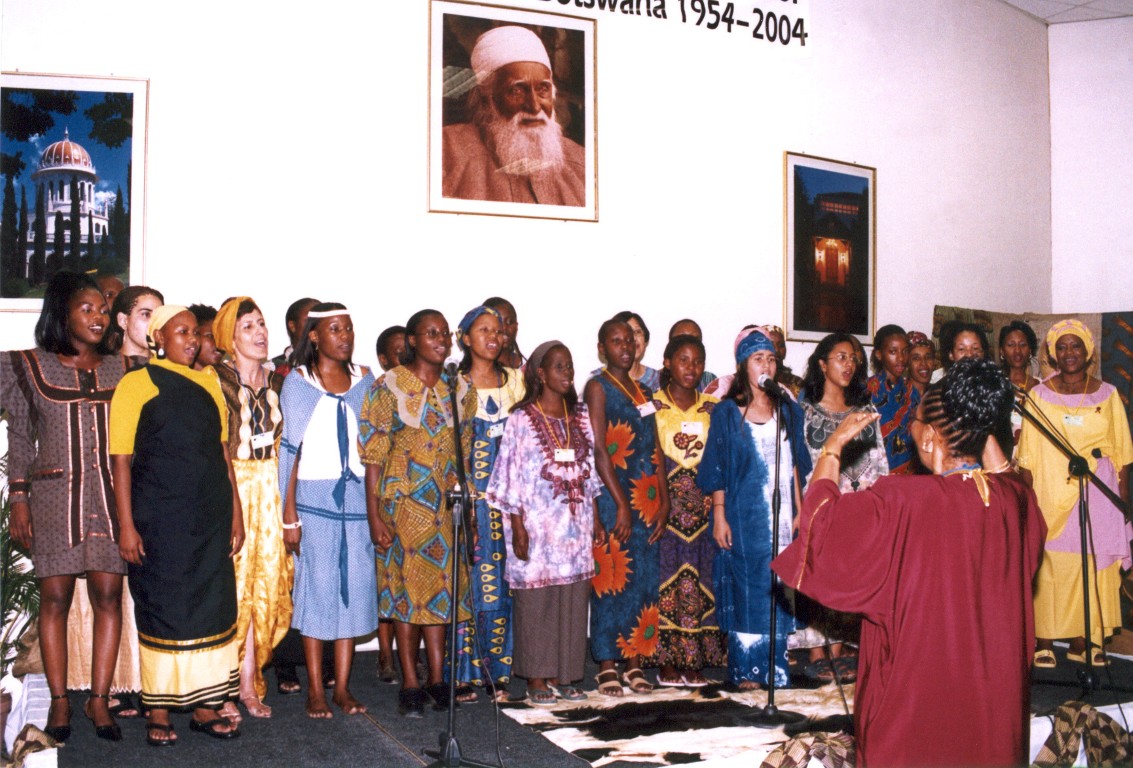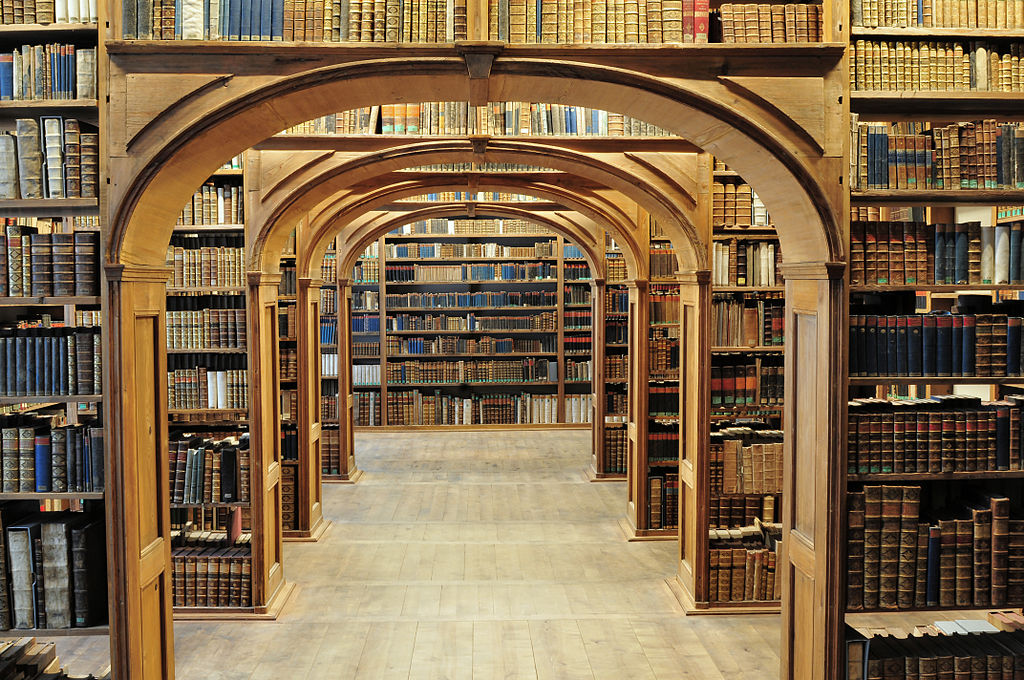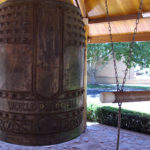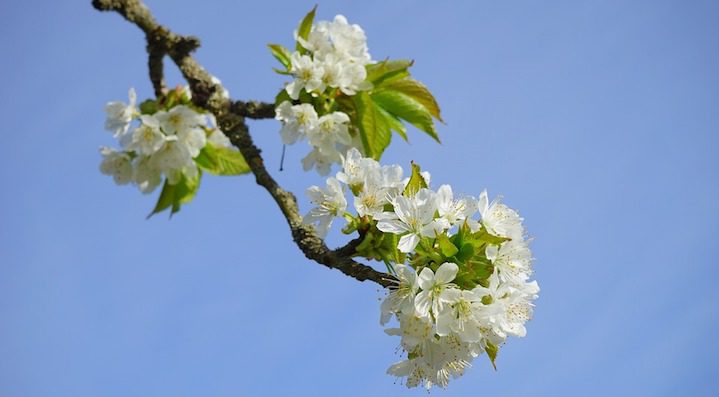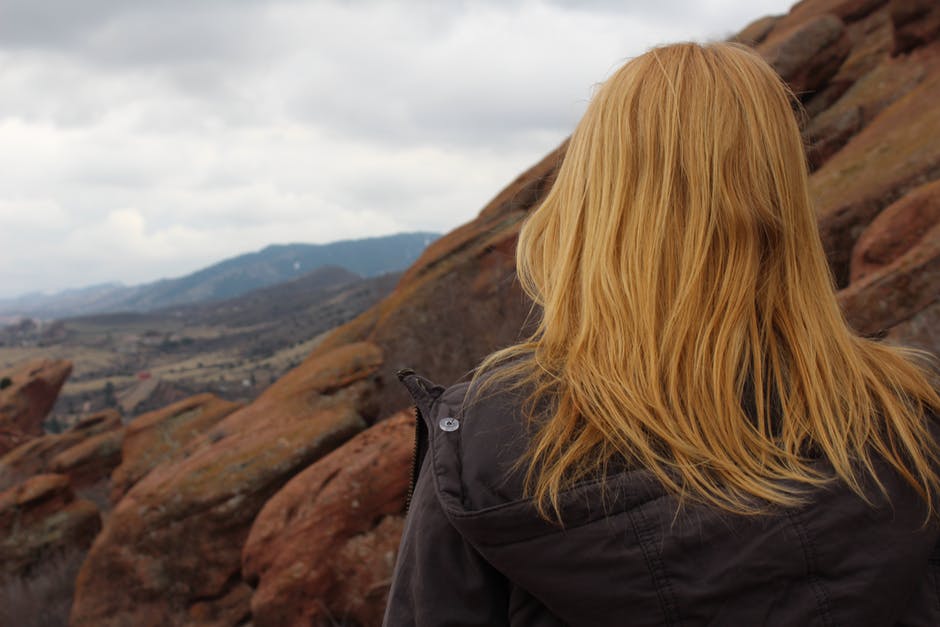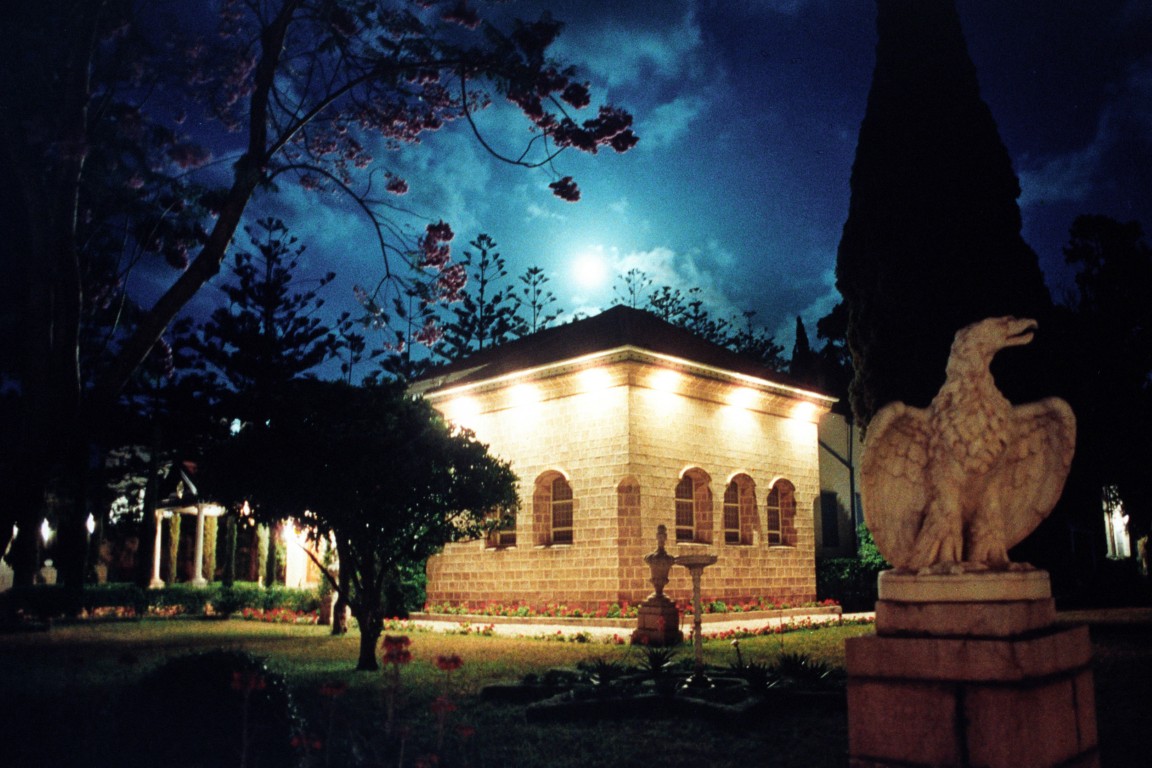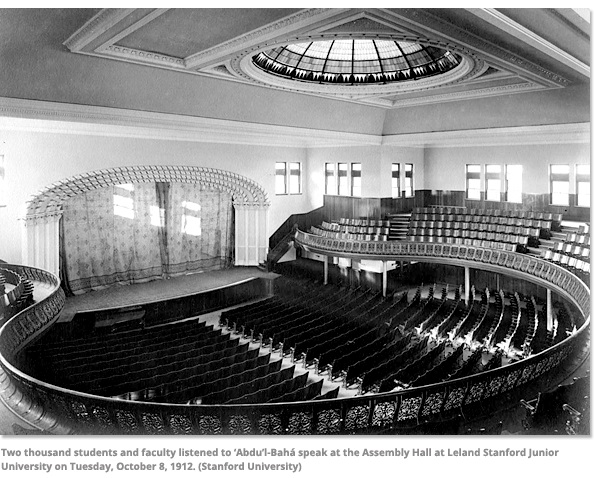
Higher Learning – Science and Peace

During his journey through North America Abdu’l Baha visited a number of universities. He spoke at Columbia University in New York, Howard University in Washington DC and Stanford University in Palo Alto. Much of my life is associated with universities. So these talks have special meaning at a personal level. Particularly at Columbia and Stanford, Abdu’l Baha’s spoke about science and peace – another implication of harmony of science and religion.
At Howard University – at the time a university established to provide educational opportunities for African American students – Abdu’l Baha spoke of oneness of humanity and the importance of love between black and white Americans.
At Colombia University, Abdu’l Baha reflected on higher learning itself. He reflected on the importance of science to human progress referring to the university as a “great temple of learning” and praising scientific achievement. But he also called for more:
As material knowledge is illuminating those within the walls of this great temple of learning, so also may the light of the spirit, the inner and divine light of the real philosophy glorify this institution. The most important principle of divine philosophy is the oneness of the world of humanity, the unity of mankind, the bond conjoining East and West, the tie of love which blends human hearts. …
Therefore, it is our duty to put forth our greatest efforts and summon all our energies in order that the bonds of unity and accord may be established among mankind. For thousands of years we have had bloodshed and strife. It is enough; it is sufficient. Now is the time to associate together in love and harmony.[1]
Science and Peace
Science and peace are intimately linked. In October 1912, at Stanford University his message was similar, though further elaborated. He addressed the entire campus in university’s assembly hall: both students and faculty.
The highest praise is due to men who devote their energies to science, and the noblest center is a center wherein the sciences and arts are taught and studied. Science ever tends to the illumination of the world of humanity.[2]
Noting that the fundamental principle of Bahá’u’lláh’s teachings was the oneness of humanity Abdu’l Baha spoke of the oneness: of reality itself – and by implication of human phenomena. Science is that power in human beings that has freed us from nature.
“When we are not captives of nature, when we possess the power to control ourselves, shall we become captives of nature and act according to its exigencies?”[3]
He concluded his talk as follows.
God created one earth and one mankind to people it. Man has no other habitation, but man himself has come forth and proclaimed imaginary boundary lines and territorial restrictions, naming them Germany, France, Russia, etc. And torrents of precious blood are spilled in defense of these imaginary divisions of our one human habitation, under the delusion of a fancied and limited patriotism.
After all, a claim and title to territory or native land is but a claim and attachment to the dust of earth. We live upon this earth for a few days and then rest beneath it forever. So it is our graveyard eternally. Shall man fight for the tomb which devours him, for his eternal sepulcher? What ignorance could be greater than this? To fight over his grave, to kill another for his grave! What heedlessness! What a delusion!
It is my hope that you who are students in this university may never be called upon to fight for the dust of earth which is the tomb and sepulcher of all mankind, but that during the days of your life you may enjoy the most perfect companionship one with another, even as one family—as brothers, sisters, fathers, mothers—associating together in peace and true fellowship.[4]
Abdu’l Baha’s concluding words of hope are the more poignant when we realise that he was well aware of the approach of a world conflagration. In his final words before departing America onboard the steam ship Cedric – he warned of what was ahead.[5]
Beyond the immediate history surrounding these talks – they speak of a vision of the harmony of science and religion in which religion informs and improves science. Science – properly informed by religion – becomes an undertaking dedicated to peace and human welfare. Because warfare over human graves is nothing but absolute ignorance. Earlier we saw that science informs and improves religion by freeing it of superstition and prejudice.
Here we see that sound religion frees science from enslavement to the lower forces of human nature – and enables it to become a vehicle for the expression of divine qualities with which humanity is endowed. Most particularly, true science is knowledge which serves the peace and oneness of the world of humanity. This is science. This is higher learning.
(This article is the 54th in a series of what I hope will be 200 articles in 200 days for the 200th anniversary of the birth of Bahá’u’lláh. The anniversary is being celebrated around the world on 21 and 22 October 2017, The articles are simply my personal reflections on Bahá’u’lláh’s life and work. Any errors or inadequacies in these articles are solely my responsibility.)
Image Credits: Image of Stanford University Assembly Hall reproduced under licence terms from bahaiteachings.org:
http://bahaiteachings.org/abdul-baha-speaks-at-stanford-university
